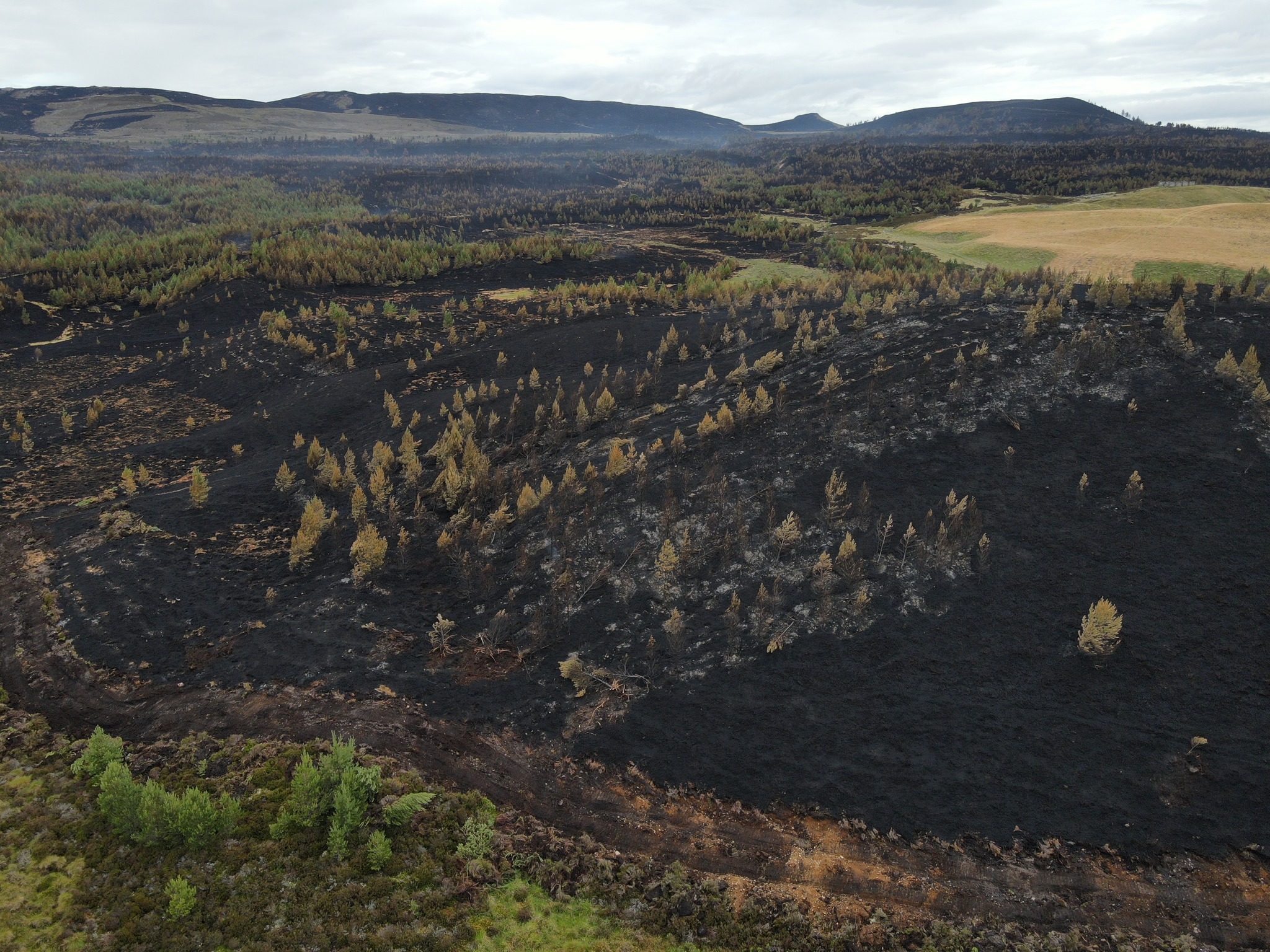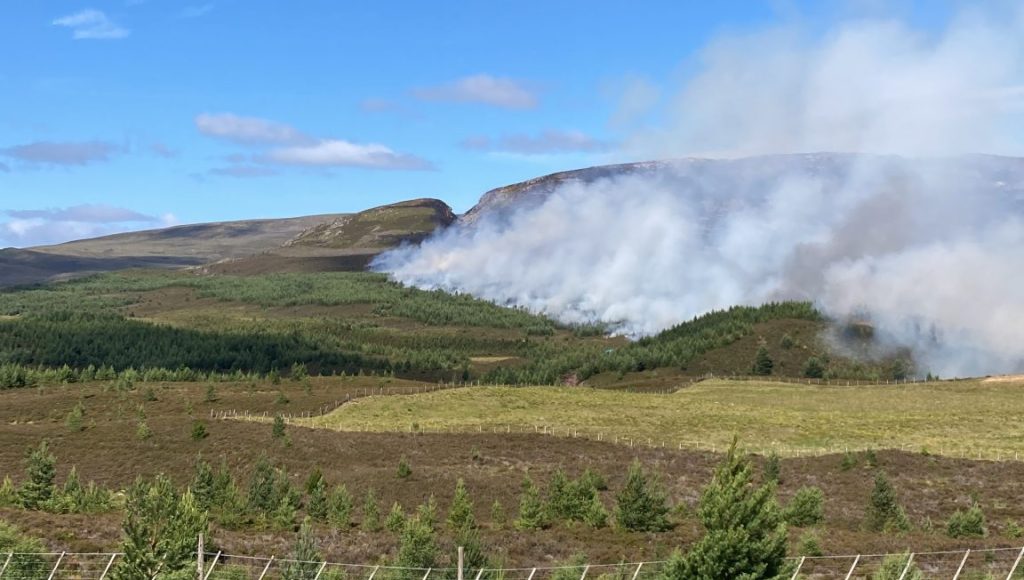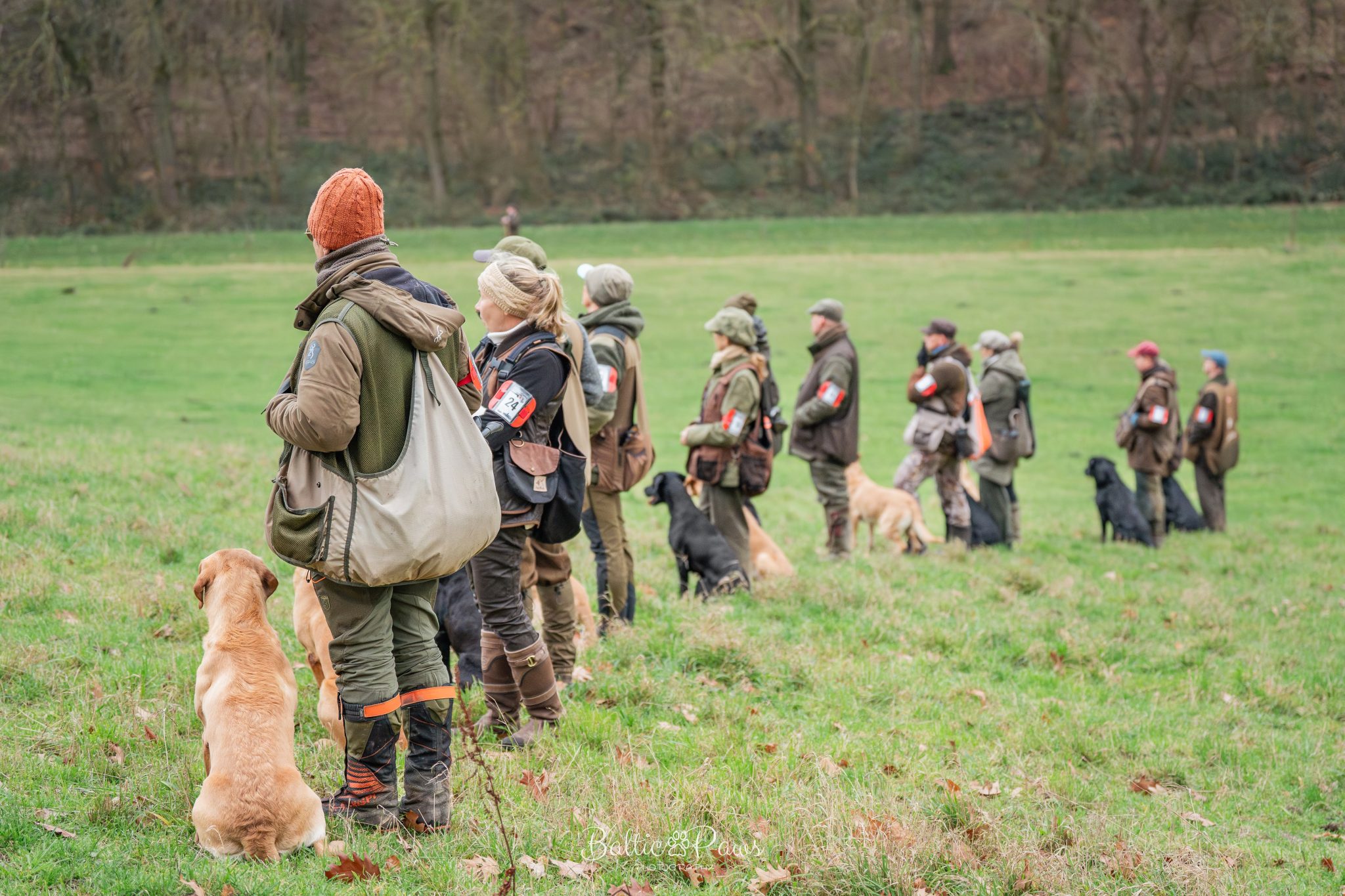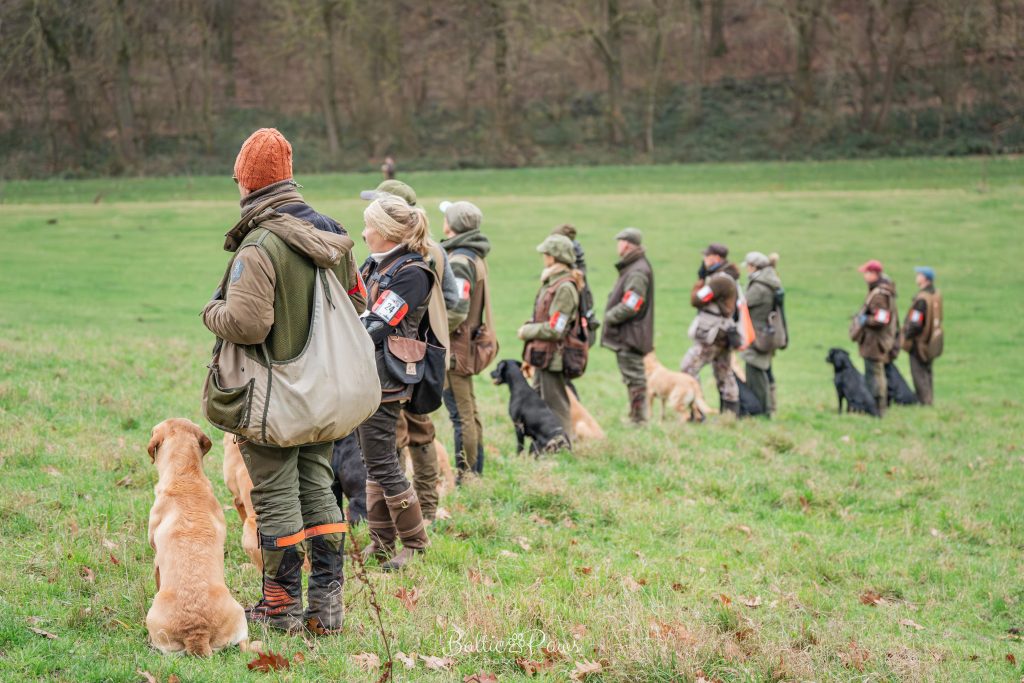The countdown is on for The British Shooting Show – book tickets online today and save on gate price!
Record wildfire prompts Scottish U-turn on muirburn licensing
The Scottish Government has delayed its muirburn licensing scheme until autumn 2026 following record wildfires near Carrbridge and Dava
 A portion of the devastation caused by the Carrbridge and Dave wildfires. Credit: Cawdor Forestry Limited.
A portion of the devastation caused by the Carrbridge and Dave wildfires. Credit: Cawdor Forestry Limited.
Government delays controversial licensing scheme
Land managers have won a reprieve in their battle against muirburn licensing restrictions, with the Scottish Government postponing the scheme until autumn 2026 after Scotland’s worst wildfire on record.
Agriculture Minister Jim Fairlie MSP announced the delay on 9 October, acknowledging that the new rules must not “adversely affect our ability to prevent and respond to wildfires”.
Carrbridge and Dava fires reshape policy
The decision follows the devastating Carrbridge and Dava wildfires in June, which saw flame lengths of 20 metres and released an estimated 590,000 tonnes of CO₂ equivalent over four days. The licensing scheme, which was due to start on 1 January 2026, has now been pushed back by nearly two years.
The muirburn licensing provisions were introduced under the Wildlife Management and Muirburn (Scotland) Act, passed by the Scottish Parliament in March 2024. The scheme had originally been scheduled to begin in September 2025 but was previously postponed to January 2026 due to logistical challenges, particularly around measuring deep peat.
Industry welcomes delay
BASC Scotland cautiously welcomed the announcement but raised concerns about the legislation’s workability. Director Peter Clark said: “While we welcome this delay, and it represents progress, the fact remains that the legislation makes the licensing scheme impractical and unworkable.”
The Scottish Gamekeepers Association struck a similar tone. Chairman Alex Hogg MBE said: “Watching 100 years of carbon released from peatlands through wildfire is in no one’s interest. It does nothing for environmental targets or public investment.”
He added that the SGA looks forward to “making future changes more workable, drawing on our members’ centuries of knowledge in this area”.
Firefighting efforts underline private sector role
A report prepared for the Scottish Government by Scottish Land & Estates (SLE) revealed that at least 36 businesses, including 30 estates, contributed resources to fighting the Carrbridge and Dava fires. The collective value of specialist firefighting equipment deployed by private land managers is estimated at nearly £4 million, with at least 110 employees and contractors involved in containment efforts.
Ross Ewing, SLE’s director of moorland, warned that restricting muirburn would increase fuel loads and erode the infrastructure and expertise that helped contain the recent fires. “That would be catastrophic for rural Scotland,” he said.
Contrast with England’s new regulations
The Moorland Association contrasted Scotland’s approach with England, where new burning regulations came into effect on 30 September. The organisation has sent a pre-action letter to Defra, launching a legal challenge against the consultation process behind England’s restrictions, which it argues will increase wildfire risk by preventing effective vegetation management.
“We do not want it to take a similar, massive and devastating fire in England to change minds here,” the organisation warned.
Have a news story to share?
Contact our group news editor Hollis Butler at hollis.butler@twsgroup.com. We aim to respond to all genuine news tips and respect source confidentiality.

Related Articles
Get the latest news delivered direct to your door
Subscribe to Shooting Times & Country
Discover the ultimate companion for field sports enthusiasts with Shooting Times & Country Magazine, the UK’s leading weekly publication that has been at the forefront of shooting culture since 1882. Subscribers gain access to expert tips, comprehensive gear reviews, seasonal advice and a vibrant community of like-minded shooters.
Save on shop price when you subscribe with weekly issues featuring in-depth articles on gundog training, exclusive member offers and access to the digital back issue library. A Shooting Times & Country subscription is more than a magazine, don’t just read about the countryside; immerse yourself in its most authoritative and engaging publication.







